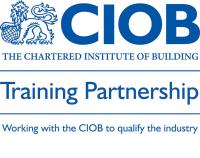Overview:
Aims & Objectives:
Where possible, ideally thses should be measurable by the client
These objectives should be written in behavioural terms to determine the skill, knowledge and attitudinal changes on completion of the course. Behavioural objectives commence with active verbs such as - describe, list, state, develop, construct, define, examine, match, debate, distinguish, determine. To help in foucusing on behavioural objectives, we suggest starting with the sentence:
On completion of this course, delegates will be able to:…. And follow by any of those below:
Course Outline:
1. Scope of Environmental Law
- Common Law
- Statutes
- Essential Legislation covering land, air, water and noise
2. The Environment and Town and Country Planning
- Overview
- Environmental Impact Assessments
- Common Law
- Nuisance
- Negligence
- Rylandes - v - Fletcher
3. Statutory nuisances
- Types of nuisances
- Procedure
- Abatement notices
- Criminal Liability
- Action by individuals
4. Pollution offences
- Overview
- Section 85 (1) Water Resources Act 1991
- Section 33 (1) (a) Environmental Protection Act 1990
- Section 23 Environmental Protection Act 1990
- Offences by Company Officers
- Defences
- Procedure and Penalties
- Contaminated Land
- Part II A Contaminated Land
- Legislation and Practice
- Essential ingredients of contaminated land
- Who is liable?
- Exclusions from liability and passing the buck
5. Waste Management
- Overview
- Duty of Care
- Waste Management Licences
6. Judicial Review
- Overview
- Grounds for Judicial Review
- Procedure
- The Decision
- Human Rights Act 1998
Mode of Delivery:
The methodology should provide a clear differentiation between what would be concidered as an interactive training session or a presentation. If simply a presentation then it could be constructed as being seminar or briefing session and not a training session.








